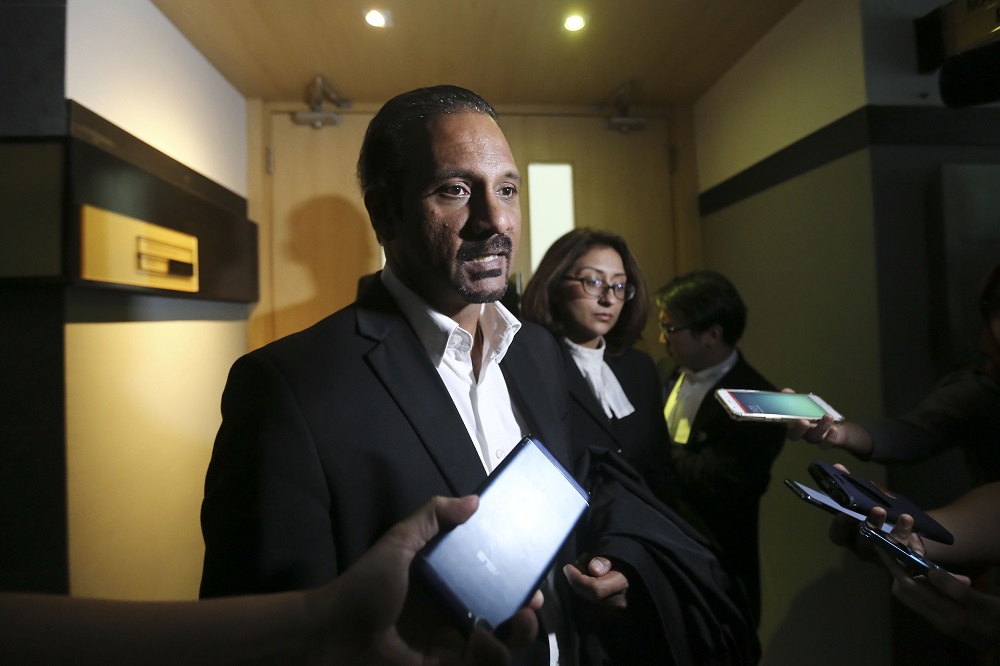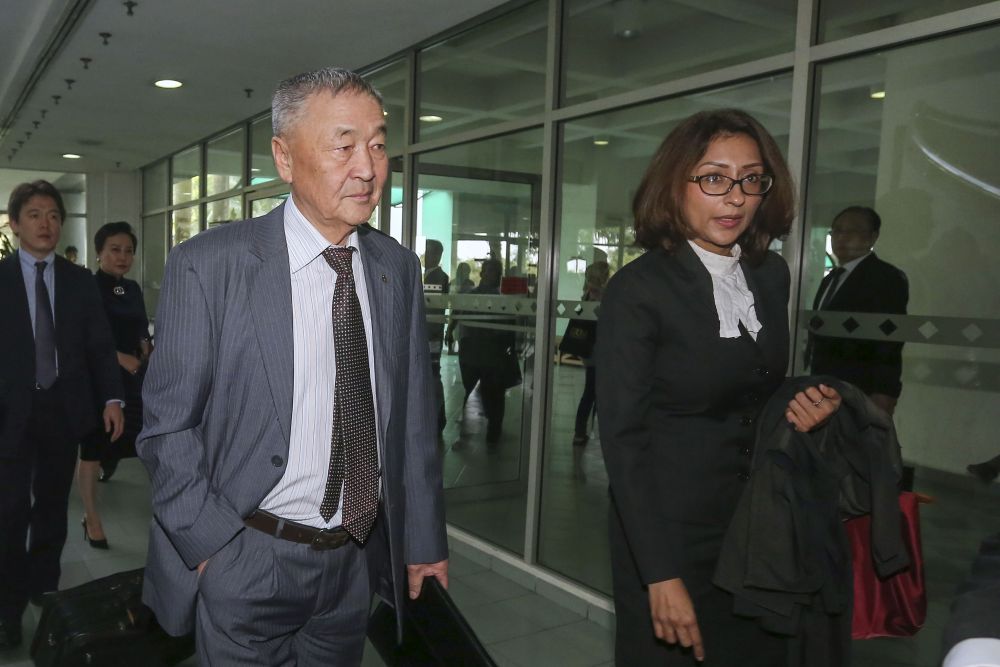SHAH ALAM, Jan 22 ― The murdered Mongolian model Altantuya Shaariibuu's youngest son had died amid the family's 12-year wait for their RM100 million civil lawsuit against the Malaysian government to start, while her father Shaariibuu Setev will be the first to testify when hearing finally begins tomorrow.
Ramkarpal Singh, a lawyer for Altantuya's family, said Altantuya's youngest child Altanshagai Munkhtulga had passed away at the age of 15.
“The fourth plaintiff, the youngest child of Altantuya, he passed away in 2017. As such he can't continue the suit, being deceased, so we have discontinued his part of the suit against defendants,” he told reporters when met at the Shah Alam court complex.
Earlier today, Ramkarpal informed the court that Altantuya's youngest son is now dead, which led to Shah Alam High Court judge Datuk Vazeer Alam Mydin Meera recording that he is no longer a party to the lawsuit that was filed in 2007.

When asked to comment on the delay of the hearing of the civil lawsuit, Ramkarpal explained that it was paused pending the conclusion of the criminal proceedings over Altantuya's 2006 murder.
After the Federal Court's January 13, 2015 unanimous decision to reverse the acquittal of former police commandos Chief Inspector Azilah Hadri and Corporal Sirul Azhar Umar over Altantuya's murder and to restore their death sentence, her family proceeded with the civil lawsuit.
Ramkarpal explained that government's initial successful bid to be removed from the lawsuit and Altantuya’s family’s successful appeal against the striking out contributed to the delay in it being heard.
“I think it's good, we are looking forward to it, we are relieved that it's finally kicking off.
“It's a very long outstanding case, the actual incident happened in 2006, that was 13 or 12 years ago, we are determined to at least get things moving.
“Although we don't know if we will be able to complete the entire case in the time fixed in the next week or two, because of the number of witnesses that need to be called. But at least it's a good start, at least we have started,” he said.
Ramkarpal said Altantuya's family has a formal list of about 80 potential witnesses for this civil lawsuit.
“But we won't necessarily call all of them, may be 20 to 30 at the moment, we will see how things develop,” he said.
Ramkarpal said Altantuya's family has three Mongolian witnesses, with her father Shaariibuu Setev to be the first to testify tomorrow when hearing starts.
The two others are a woman from Mongolia and Altantuya's other son Mungunshagai Bayarjargal.
Altantuya’s parents Shaariibuu and Altantsetseg Sanjaa, and Altantuya's two sons had on June 4, 2007 filed the civil lawsuit to claim compensation for the mental shock and psychological trauma they suffered over her death.
In the lawsuit where Altantuya's family is seeking RM100 million as compensation, the four respondents named are Sirul Azhar, Azilah, political analyst Abdul Razak Baginda and the government of Malaysia.
Sirul Azhar and Azilah were not represented by any lawyers for this civil lawsuit. Ramkarpal confirmed they did not appoint any lawyer but will remain part of the lawsuit.
When asked regarding the status of the convicted Sirul who is now in Australia, Ramkarpal said it would be unlikely for the Australian government to extradite him even though Malaysia has now suspended all death sentences pending its plan to abolish the death penalty here.
“The Australian government, even there’s a moratorium, I don’t think they will send him back as long as the death penalty is still in existence,” he told reporters.
Today was initially fixed for the start of the two-week hearing for the civil lawsuit, with Ramkarpal informing the court today that Altantuya’s family were ready to start and already had three witnesses from Mongolia lined up to testify.
The hearing will officially start tomorrow morning at 10.30am, as the legal team for Altantuya’s family has been asked to include the Mongolian language in the Mongolian witnesses’ witness statements that are now in English to allow for the parties sued to check for accuracy.
Mongolian Enkhjin Batbilig, 31, was also presented to the court by lawyers for Altantuya’s family as the interpreter for the Mongolian witnesses.
But Abdul Razak’s lawyer Manjeet Singh Dhillon challenged Enkhjin’s competency as interpreter in the suit, citing among other things that her translation experience did not involve the courts but financial matters.
Senior federal counsel Norinna Bahadun representing the government shared similar concerns, adding that Enkhjin had not undergone formal training in translation.
Ramkarpal, however, pointed out that it was clear that Enkhjin was proficient in English, noting that her qualifications would have been done in English.
The judge noted her qualifications were obtained through courses done in English and her experience in translation work and ruled that Enkhjin “is competent to assist the court to translate from Mongolian language to English and vice versa.”
Enkhjin, who had obtained a degree from the National University of Mongolia where the course was taught in English, is a trained accountant who had also studied accounting in Sunway University College in Malaysia and obtained the Association of Chartered Certified Accountants qualification.
Her translation and interpretation work includes those in official meetings, press conferences, official documents and when dealing with representatives of government, mining companies and audit firms.
The hearing was reportedly fixed for two weeks until January 31.

National Human Rights Commission of Mongolia commissioner Oyunchimeg Purev said her organisation has been actively working with Altantuya’s family for the past 12 years after her “sudden, tragic” death in 2006, and that she had come from Mongolia to observe Malaysia’s justice system.
“Whether it’s a Mongolian citizen or Malaysian citizen, a human life is the most precious of them all. Therefore, this is not only an issue between Mongolia and Malaysia, the whole world who is looking for justice is watching us today.
“I strongly believe that today’s justice system in Malaysia will prove that justice will win after all,” she told reporters here after attending the court proceedings.
“I hope the Malaysian justice system will compensate the victims’ claims and not only follow the local laws, but also the international conventions they have joined into,” she added, having noted that both Malaysia and Mongolia are part of the United Nations whose members are obliged to follow international conventions.
Counsellor Byambasuren Guntevsuren from the Embassy of Mongolia based in Thailand was also present at today’s court proceedings.



















